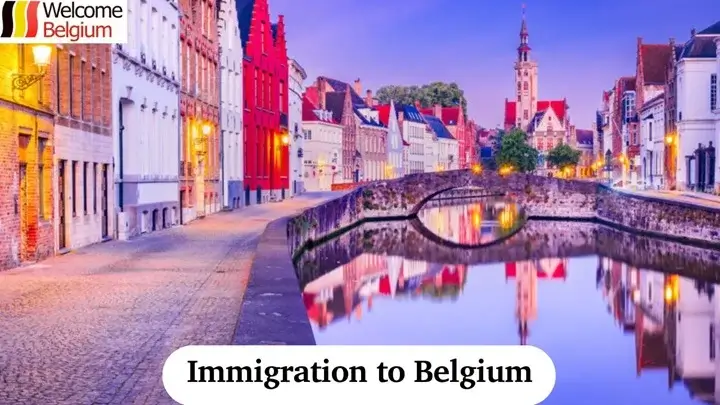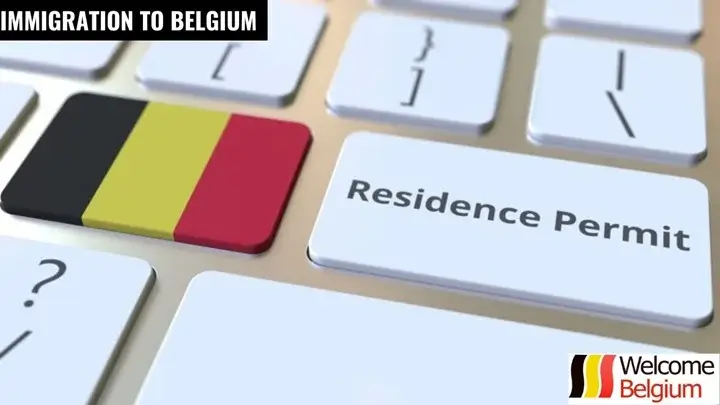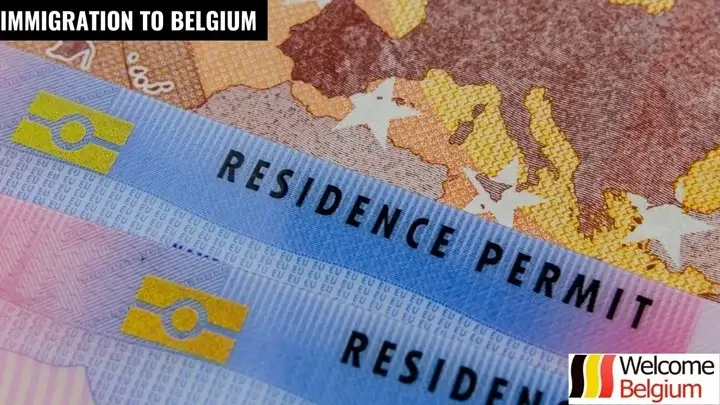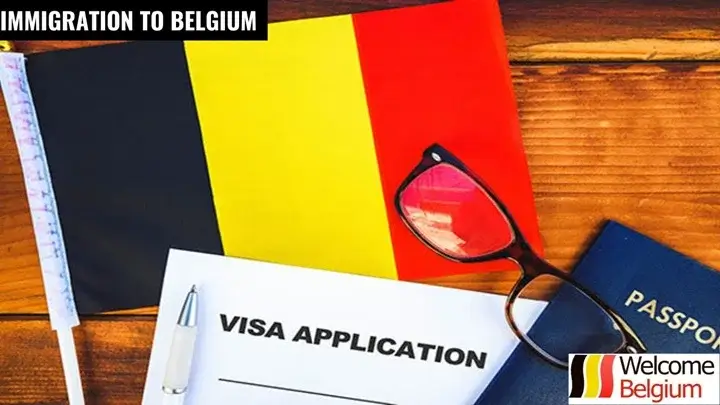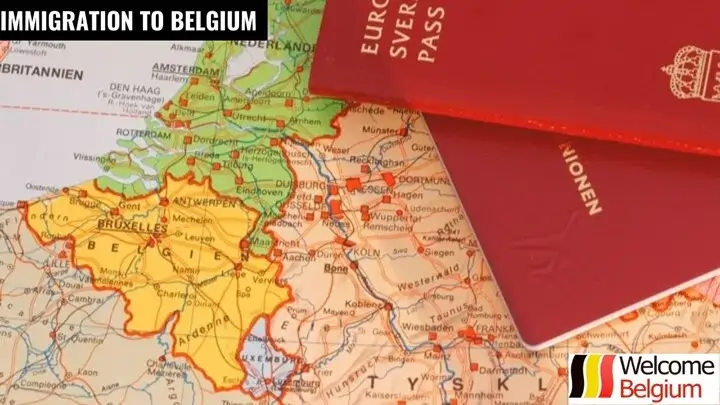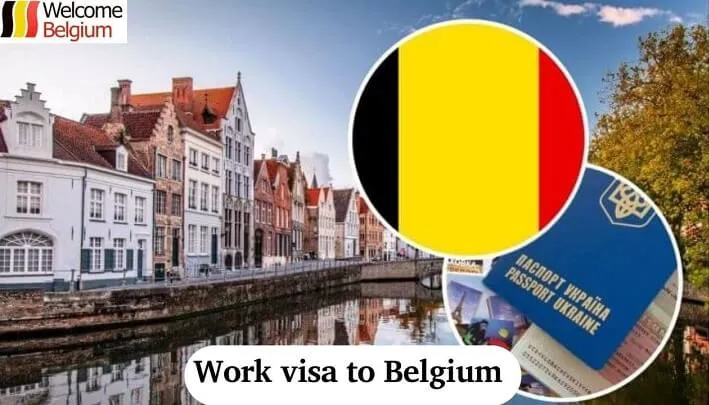Belgium attracts immigrants and refugees due to its high standard of living, convenient location in Europe and diverse cultural environment. The process of immigration to Belgium may seem complicated, but with the right preparation it becomes accessible and predictable. In this article, we will tell you about the key steps that will help you successfully adapt and build a new life in this country.
Advantages and Disadvantages of Immigration
Immigration to Belgium is convenient for people for several reasons: economic opportunities, standard of living, education and work life. Before deciding to move, you need to analyze all the pros and cons to be prepared for possible difficulties. In this section, we will consider the advantages and disadvantages of immigration to Belgium for beneficiaries to help you make an informed decision.
Advantages:
- High standard of living. Belgium offers one of the best health care and education systems in Europe.
- Central location in Europe. Convenient transportation network allows easy travel to neighboring countries, which attracts both businessmen and tourists.
- Multilingualism: The country officially uses three languages: French, Dutch and German, which makes it attractive to people with different linguistic backgrounds.
- High salaries and social guarantees. Immigrants can count on decent working conditions and a wide range of social benefits.
- Cultural diversity: Belgium’s multi-ethnic society and rich cultural heritage make it ideal for those who value cultural exchange and new experiences.
Flaws:
- High taxes: Some of the highest tax rates in Europe can be a serious financial challenge for new residents.
- Difficulty learning languages. Depending on the region, you will need to learn at least one new language, which can be a barrier to adaptation.
- High cost of housing. Especially in large cities such as Brussels or Antwerp, renting and buying a home can be quite expensive.
- Bureaucracy: Immigration procedures and government services can seem complicated and confusing.
- Weather: The climate in Belgium is often rainy and cloudy, which may not suit people accustomed to warm and sunny weather.
Immigration to Belgium for refugees has advantages and disadvantages that need to be considered when deciding to move. Weighing economic opportunities, quality of life, and cultural characteristics will help you determine whether this country is suitable for you for long-term residence. Regardless of the challenges, Belgium remains attractive to those who are ready to adapt and discover new horizons.
Interesting fact:
Belgium is known for producing over 1,500 types of beer, making it the world leader in the brewing industry.
Why immigrate to Belgium
The reasons for immigrating to Belgium in 2025 are varied. The country offers favorable conditions for professionals, students, and those seeking to reunite with family. Understanding the main motives that lead people to move helps to better prepare for life in this European country and make a plan for paperwork.
Main reasons.
- Labor immigration. Belgium offers many opportunities for professionals, especially in fields such as IT, engineering and medicine. Companies offer competitive salaries and good social security, and highly skilled workers benefit from simplified procedures for obtaining work and residence permits.
- Getting an education. Belgium is known for its universities, which offer programs in English, French, Dutch, and German. Here you can get a quality higher education, as well as stay in the country to look for a job after completing your studies.
- Family reunification. Belgian law allows citizens and residents to reunite with their family members. This is one of the main reasons for immigration, especially among those who already live in the country and want to bring their spouses, children or other close relatives.
- Business and investment. Belgium offers favorable conditions for entrepreneurs and investors. Opening a business here can be a key step to obtaining a residence permit. Small and medium-sized businesses in the country are actively supported by the state, and Belgium’s strategic location in the center of Europe opens access to a huge market.
- Political international asylum and humanitarian reasons. Refugees seeking protection from persecution or instability in their home countries can seek asylum in Belgium. The country offers humanitarian aid and protection to those in need of security and stability.
Immigration to Belgium, whether for work, study or family reunification, offers a wide range of opportunities to improve the quality of life. However, it is important to consider the legal and bureaucratic aspects in order to plan your move. Each of the reasons for immigration is specific, and successful adaptation largely depends on the choice of path and preparation.
Interesting fact:
Brussels, the capital of Belgium, is officially recognized as the most multilingual capital in Europe, where residents speak more than 100 languages.
Resident card
Obtaining a residence permit in Belgium in 2025 is a key step for those planning a long-term residence in this country. There are different types of residence permits, which depend on the purpose of the move: employment, study, family reunification or business, seeking asylum. Each of them has its own conditions and requirements, and understanding these features will help you choose an option and successfully go through the process of immigration to Belgium in 2025.
Temporary view
Obtaining a temporary residence permit in Belgium allows you to legally stay in the country for a period of 1 to 5 years, depending on the purpose of your visit. This status is suitable for work, study, business or family reunification. At the end of your stay, your temporary residence permit can be extended if the grounds for obtaining it remain in accordance with international standards.
List of basic requirements for obtaining a temporary residence permit in Belgium in 2025.
- Proof of purpose of stay (study, work, family reunification or business).
- Availability of medical insurance covering the duration of stay.
- Financial solvency (sufficient funds to live on).
- Registration of residence in Belgium.
- Submit your application to the Belgian consulate or local administration upon arrival.
A temporary residence permit is usually granted for a period of one year and can be extended depending on the living conditions and purpose of stay. It allows you to legally live and work in Belgium, as well as enjoy a number of social guarantees. This status is an important step for those who are considering permanent residence or citizenship.
Interesting fact:
In Belgium, you can obtain a residence permit through investment in business or real estate, which makes the country popular among entrepreneurs.
Permanent residence permit
Obtaining a permanent residence permit in Belgium is the first step for those who want to settle in the country on a long-term basis. This status opens access to social benefits and rights, facilitates movement within EU countries. You should obtain up-to-date information from trusted sources. The registration process requires fulfilling a number of conditions, depending on the applicant’s status and the duration of their stay in Belgium.
List of requirements for obtaining permanent residence:
- Residence in Belgium for at least 5 years on the basis of a temporary residence permit.
- Stable and legal income, confirmed by official documents.
- Knowledge of one of the official languages of Belgium (French, Dutch or German).
- Availability of health insurance.
- Compliance with integration rules, which include successful participation in integration programs (depending on the region).
Obtaining a permanent residence permit in Belgium, immigration in 2025 is a real goal for those who are ready to comply with the legal requirements of the country. The permanent residence status not only provides legal protection, but also opens up new opportunities for work, education and life in the European Union in 2025. Successful completion of the process requires patience and attention to detail, applications may be considered for a long time. The same applies to persons without a certain citizenship, which is relevant for immigration in 2025.
Interesting fact:
After receiving permanent residence in Belgium, you will be able to live and work in any EU country without the need to obtain additional permits.
Registration of temporary and permanent residence permits
Obtaining a temporary or permanent residence permit (RP) in Belgium is a key step for those planning to move to the country for a long period of time. The process may vary depending on the purpose of your stay: work, study, family reunification or starting a business. To successfully complete all the stages, you must prepare a full package of documents in advance and follow the established procedures. This is how you can quickly immigrate to Belgium in 2025.
List of documents:
- Application for a residence permit – the form is available on the website of the migration service.
- Foreign passport – original and copy.
- Photos – passport size.
- Medical insurance is a policy that covers the entire duration of your stay.
- Proof of income – bank statements, salary slips or work contract.
- Proof of residence – rent or purchase of housing.
- Certificate of no criminal record – for applicants over 18 years of age.
- Medical report – about the state of health.
The application for a residence permit is submitted to the local municipality (commune / gemeente) where you live in Belgium. For a temporary residence permit, you must contact the local Belgian consulate in your country.
Contacts for submitting documents:
- Brussels City Hall: Boulevard Anspach 6, 1000 Brussels. Phone: +32 2 279 22 11. Website: https://www.brussels.be.
- Ghent City Hall: Botermarkt 1, 9000 Gent. Phone: +32 9 266 70 00. Website: https://www.gent.be.
Procedure:
- Collection of documents and preparation of all necessary certificates.
- Make an appointment at the municipality or consulate via the online system.
- Submitting an application and paying administrative fees.
- Waiting for a decision (usually 3 to 6 months).
- Obtaining a temporary residence permit, which can then be extended or converted to permanent status.
The cost of obtaining a temporary residence permit varies from 200 to 400 euros depending on the category of the applicant. A permanent residence permit will cost more, especially for those engaged in business. Fees are paid via bank transfer or upon submission of the application.
Obtaining a residence permit in Belgium requires careful preparation and understanding of all the legal intricacies of the process. Timely submission of documents and compliance with all rules increases your chances of successfully obtaining status. Regardless of the purpose of immigration, planning each step in advance will help you avoid delays and other complications during immigration to Belgium in 2025.
Interesting fact:
Belgium is one of the few countries where you can apply for a residence permit through a digital platform.
Duties and taxes
Obtaining a temporary or permanent residence permit (RP) in Belgium is accompanied by various administrative fees and taxes. Their amount depends on the category of the applicant and the purpose of stay in the country (study, work, business, etc.). To avoid unexpected expenses, it is important to familiarize yourself with these requirements in advance.
Each applicant is subject to an administrative fee, which is charged for processing an application for temporary or permanent residence permit. Fees vary:
- Temporary residence permit (short-term stay). From 200 to 350 euros depending on the type of visa. For example, for a student the amount may be lower than for those who are traveling on a work contract or opening a business.
- Permanent residence permit. From 350 to 500 euros. For investors or persons who want to obtain resident status based on economic activity, the cost may increase.
When applying for a residence permit, you may be required to submit biometric data (fingerprints and photos). The cost of this procedure is 22-30 euros and is paid on site at the migration center or consulate.
Once your application has been approved, you will need to obtain an electronic ID card, which acts as a residence permit in Belgium. The cost of producing one is:
- For temporary residence permit: from 25 to 50 euros.
- For permanent residence: around 50–75 euros depending on the region. Some municipalities may charge additional fees.
If you are planning to obtain a residence permit on the basis of business, you need to take into account the following taxes and fees:
- The company registration fee (when opening a business) is about 120 euros.
- Annual business taxes: depend on your income and the type of activity. Belgium has a progressive tax scale with a minimum rate of around 25% and a maximum of up to 50%.
When obtaining a residence permit for work in Belgium, it is important to consider income tax. It is progressive and can reach up to 50% of the salary for those who earn a high income. There are also mandatory social contributions (about 13.07% for employees), which are automatically withheld by the employer.
All holders of a residence permit are required to make contributions to the social security system. For employees, this amount is usually withheld by the employer and amounts to about 40% of the salary (partly paid by the employer and partly by the employee).
Health insurance is mandatory for everyone in Belgium. The average cost of a health insurance policy ranges from 90 to 130 euros per month for standard coverage. This amount may increase depending on the age and health of the applicant.
How to pay duties and taxes when immigrating to Belgium in 2025:
- Bank Transfer. Once your application has been submitted, you will receive payment details for the fees. Payment must be made before your application can be processed.
- Pay on site. In some municipalities you can pay fees and charges on site using a bank card or cash.
- Online payment. If you apply through a Belgian consulate or a digital platform, you can pay the fees online.
Fees and taxes are an important part of the process of obtaining a residence permit in Belgium, and their amount depends on the category of the applicant and the purpose of stay. When planning immigration, it is necessary to take these costs into account in your budget. Timely payment of fees is a key step for the successful receipt of a residence permit, as well as for further extension of the status.
Requirements for immigrants
The immigration process to Belgium is simple, but there are a number of requirements that must be met to successfully move. Depending on your country of residence, the purpose of your visit, and your desired status, these requirements may vary. It is important to understand that strict criteria such as financial means and language skills play a key role in the immigration process. In this section, we will look at the main requirements that must be met to legally immigrate to Belgium in 2025.
Requirements for immigrants in Belgium:
- Visa: For a long stay in Belgium, a type D visa is required, which must be obtained before arrival.
- Financial capacity: Immigrants must prove that they have sufficient funds to support themselves in the country without having to apply for government assistance.
- Language skills: Knowledge of one of the official languages of Belgium (Dutch, French or German) may be mandatory depending on the region.
- Health insurance. Having valid health insurance is a requirement for obtaining a visa and residing in Belgium.
- No criminal record. Immigrants must provide a certificate of no criminal record from their country of residence.
- Education and work. For some types of visas, such as work visas, you must have an invitation from a Belgian employer or a document confirming your enrolment in an educational institution.
Immigration to Belgium in 2025 requires a careful approach to fulfilling all requirements, as this can significantly affect the success of your move. Preparing documents, knowing the language and having financial independence are important steps on the way to a new life. Understanding these criteria will help avoid possible difficulties and make the process smoother and more comfortable.
Interesting fact:
Belgium is home to over 3,000 castles, many of which can be visited and explored, making the country a true paradise for history and architecture lovers.
How to obtain Belgian citizenship
Obtaining Belgian citizenship is an important step for immigrants who want to integrate into Belgian society and take advantage of all the rights it offers. The process can be lengthy and requires meeting a number of requirements, but a successful outcome opens the door to new opportunities. In this section, we will take a detailed look at the conditions and steps to take to obtain citizenship.
Requirements for obtaining citizenship:
- You must have resided legally in Belgium for at least 5 years. For persons married to a Belgian citizen, the period is reduced to 3 years.
- Knowledge of languages. Prove knowledge of one of the official languages of Belgium (French, Dutch or German). A minimum level of A2 is required.
- Show integration into Belgian society, including participation in public life.
- No criminal record. No serious criminal violations.
- Financial independence. Prove that you have a stable income.
Where to apply:
- Federal Service for Migration Affairs. Address: Rue de la Presse 35, 1000 Bruxelles. Telephone: +32 2 793 80 00. Website: http://www.ibz.be.
- Local authorities. Contact your local town hall for information on how to apply and the documents required. Website: https://www.brussels.be.
Obtaining Belgian citizenship requires patience and attention, but the process opens up many opportunities for personal and professional growth. Once you have completed all the necessary steps and requirements, you can become a full member of Belgian society. Remember that the path to citizenship is not only about the formal side, but also about the desire to be part of Belgium’s unique cultural environment.
Interesting fact:
Belgium is a country with three official languages, making it one of the most multilingual countries in the world.
Rating of regions for immigration to Belgium
Belgium offers a variety of regions, each with its own unique advantages and characteristics. The choice of region for immigration to Belgium in 2025 depends on your personal preferences, professional opportunities and language skills. In this section, we will look at three of the most popular regions for immigrants, evaluating them according to criteria such as quality of life, economy and cultural characteristics.
Brussels:
- Quality of life. Brussels is the capital of Belgium and the European Union, making it a centre of international politics and business. The city offers a high standard of living, extensive cultural events and a varied cuisine.
- Economy: Strong labor market, especially in international relations, finance, and technology.
- Cultural features: Multilingual and multicultural environment with great opportunities for social integration.
Flemish region (Flanders):
- Quality of life: Flemish cities such as Antwerp and Ghent are known for their high quality of life, beautiful architecture and well-developed infrastructure.
- Economy: The region has a strong economy, with a focus on technology, science and manufacturing. Flanders is home to many large companies and start-ups.
- Cultural aspects: Influence of Dutch language and culture, which can be an advantage for native Dutch speakers.
Walloon Region (Wallonia):
- Quality of life: Walloon cities such as Liège and Namur offer a relaxed lifestyle and lower housing costs compared to Brussels and Flanders.
- Economy: Although the Walloon economy is less developed, recent years have seen growth in sectors such as sustainable development and high technology.
- Cultural features: The French-speaking culture, rich in history and traditions, attracts those interested in the French language and culture.
The choice of region for immigration to Belgium depends on your personal goals and preferences. Each region offers its own unique opportunities and advantages, making Belgium an attractive country for immigrants. When planning a move, it is important to consider both economic and cultural aspects to choose the best option for your new life.

